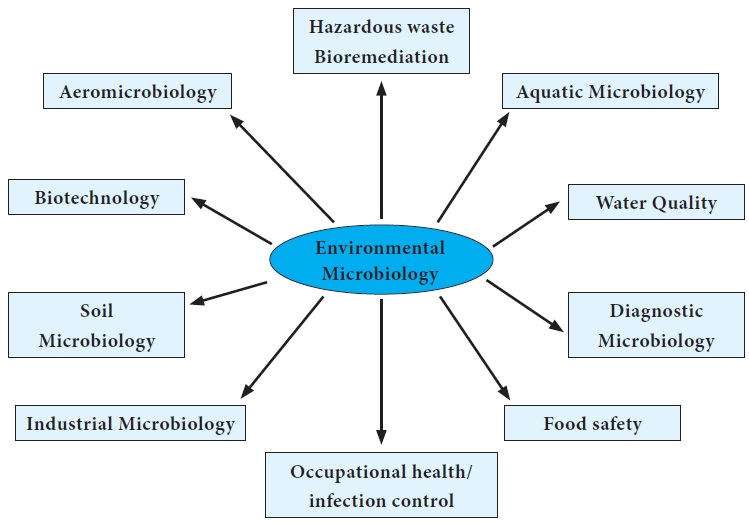Chapter: 11th Microbiology : Chapter 9 : Environmental Microbiology
Environmental Microbiology
Environmental Microbiology
Environmental Microbiology is the field of science that examines
the relationship between microorganisms and their biotic and abiotic
environments. Microorganisms in the environment are diverse in origin and
ubiquitous. Environmental Microbiology involves the study of the applied
effects of microorganisms on the environment and on human activity, health and
welfare.
It was in the 1970s that a new area of Microbiology emerged and
developed into the field of Environmental Microbiology. The initial focus was
on water quality pathogens in the environment in the context of public health
safety. The developing field of environmental microbiology expanded to several
other areas of applied research. These include microbial interactions with
chemical pollutants in the environment and the use of microorganisms for
resource production and resource recovery.
Chemical pollutants in soil and ground water have pronounced
effects on human population. The cost of cleanup or remediation of the
contaminated sites is too high. The overall objective of this chapter is to
define the important microbes involved in environmental microbiology, the
nature of the different possible environments in which the microbes are
situated, the methodologies used to monitor the microbes and their activities
and finally the possible effects of the microbes on human activities.

Related Topics